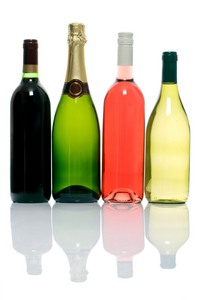Archives
October 2020
August 2020
June 2020
April 2020
January 2020
August 2019
July 2019
May 2019
August 2018
July 2018
May 2018
March 2018
November 2017
August 2017
February 2017
September 2016
January 2015
September 2014
July 2014
June 2014
May 2014
October 2013
July 2013
June 2013
May 2013
April 2013
March 2013
February 2013
January 2013
December 2012
November 2012
September 2012
August 2012
May 2012
April 2012
17 June 2020
How to store all types of wine � including Natural wines

It doesn’t matter what level of interest and passion towards wine you have, if you enjoy drinking it, then you need to know how to store it properly. The price of the wine has no effect on the way it should be stored – nor does the type of wine. Whether it’s an average bottle from the supermarket, a bottle of natural wine or an expensive gem from a wine merchant, they should all be stored in the same fashion. There are a couple of very useful tips within the article on how you should go about storing wine – whether you intend to drink in next week, or next year.
If you stick to the following guidelines when storing your bottle of wine, you will never go too far wrong, meaning when it comes to popping the cork, you won’t be disappointed.
Bottle positioning: Wine bottles should always be stored horizontally, no greater than at 25 degrees. The cork must be kept moist, as it prevents the bottle from becoming “corked”. When this happens, you’ll know, as the wine will taste very different and will sacrifice the intended taste that the wine maker had when the wine was created. There are several types of wine racks that can be purchased to ensure that their resting position is perfect, whether you want to store a few bottles, or hundreds!
Lighting: You should avoid storing your bottle of natural wines, normal wine and sulphite free wine in direct sunlight. Wine should be stored in a darker area and although most wine bottles are made with glass filters that filter out ultra-violet rays, they can still sometime be penetrated and affect the natural evolution of the wine.
Temperature: Wine should always be stored in an area that is cool. It should also be an area that has a regular contrast temperature as close to 12.7°C as possible. Should there be large fluctuations in temperatures affecting the aging process of the wine and in addition if the wine becomes too warm, it will potentially take on vinegar edge taste that will ruin your wine. It is worth remembering that you should not store your wine on top of a fridge, as the heat produced by the fridge will ruin your wine.
Humidity: It is important that you store your wine in an area that is more humid. Natural evolution will take its toll on wine that is stored in areas too dry and the aging process will be destroyed. There are several inexpensive special wine refrigerators available that will maintain humidity that are very worthwhile investments in your wine, especially if you live in a locality that is very dry.
Vibrations: This is often overlooked as a factor that influences the quality of a wine.Your wine should always be stored in an area away from any vibration movement, whether it’s a generator, water pump, washing machine or anything else.
Odours: Do not store your wine in an area where there is a particular odour. Wine has been known to take on the odours of other items in its proximity. Storing it next to the onions or in the pantry is not a good idea.
Should you stick to these basic guidelines of wine, natural wine and sulphite free storage, you should get a perfect bottle of wine every time you decide to crack it open. For a range of wine and wine related products, see Good Wine Online, as they have a spectacular catalogue of wines for all types of people. Whether its price playing a factor on your choices, type of wine or personal requirements (allergies etc) then it is the place to go to pick up the best bottle of wine on the internet.